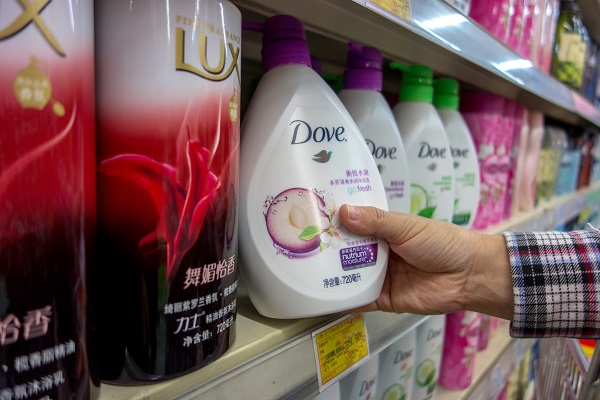Unilever shares race to three-month high on Q1 results
After a good recovery from February lows, reaction to first-quarter results has been positive.
29th April 2021 15:19
by Graeme Evans from interactive investor
After a good recovery from February lows, reaction to these first-quarter results has been positive.

Recovering Unilever (LSE:ULVR) shares are now 13% higher than their pandemic low in February after the consumer goods giant served up a double helping of positive news for investors today.
The latest 4% share price rally to 4,232p is a far cry from the mood of shareholders after Unilever's previous update less than three months ago, when the Hellmann's, Ben & Jerry's and Domestos company disappointed with slower fourth quarter sales growth of 3.5%.
The new financial year has opened with a robust quarterly rise of 5.7%, a figure better than the 3.9% forecast in the City and driven by a jump of 9.8% in the foods and refreshment division. It also announced plans to buy back its shares for the first time since 2018.
- Bill Ackman: THE serious threat to investors in 2021
- Global funds switch focus from tech to value shares to play recovery
- Check out our award-winning stocks and shares ISA
Unilever said fluctuating Covid-19 case levels and different markets entering and exiting lockdowns continue to have a big impact on consumer behaviour and channel dynamics.
In North America and Europe, it said strong demand for home cooking has continued, while some emerging markets including China are growing by double digit percentages as they also benefit from comparisons with the previous year's lockdowns.
Beauty and personal care categories have remained subdued after posting underlying sales growth of 2.3% while the home care division saw an improvement of 5.9%.
Across the group, Unilever is sticking by its usual guidance for growth of between 3% and 5% this year after signalling that the first half of the year will be towards the upper end of the range.
The operating margin has come under pressure from several factors, with Covid-19 continuing to cause additional supply chain costs and a negative margin mix. Commodity and freight costs have increased further, and the company will soon lap lower marketing spending from the first half of last year.
Unilever expects the margin to decline in the first half but still increase over the year as a whole.
Stronger cash flows and the calmer market conditions mean it will begin buying back its shares from May. The plan worth three billion euros (£2.6 billion) reflects a drive for balance sheet efficiency, but Unilever told reporters it did not mean that acquisitions are off the table.
Buy-backs reduce the number of shares in issue, effectively enhancing the value of the remaining shares and also flattering earnings per share metrics. Unilever joins BP and a growing number of top flight companies in restarting buy-backs, although this is among the first in the consumer goods sector.
- Lloyds Bank’s results are a recovery play in action
- Watch our latest market comment by subscribing to the ii YouTube channel here
Unilever is home to around 400 brands, including Dove, Sunsilk, Comfort and Knorr, with its products used by 2.5 billion people every day. Recent years have not been plain sailing after wage-squeezed consumers turned to cheaper non-branded goods and Procter & Gamble also stepped up as a competitor. Unilever's shares had been more than 5,000p in 2019.
However, the company is working hard to restore former glories after management announced five strategic goals alongside recent annual results for 2020. These included accelerating growth in the US, India and China and leveraging its emerging markets strength.
Analysts at UBS have a price target of 3,700p, with Unilever's current price multiple of 19 times 2022 forecast earnings a discount of about 18% to the wider European food sector.
These articles are provided for information purposes only. Occasionally, an opinion about whether to buy or sell a specific investment may be provided by third parties. The content is not intended to be a personal recommendation to buy or sell any financial instrument or product, or to adopt any investment strategy as it is not provided based on an assessment of your investing knowledge and experience, your financial situation or your investment objectives. The value of your investments, and the income derived from them, may go down as well as up. You may not get back all the money that you invest. The investments referred to in this article may not be suitable for all investors, and if in doubt, an investor should seek advice from a qualified investment adviser.
Full performance can be found on the company or index summary page on the interactive investor website. Simply click on the company's or index name highlighted in the article.